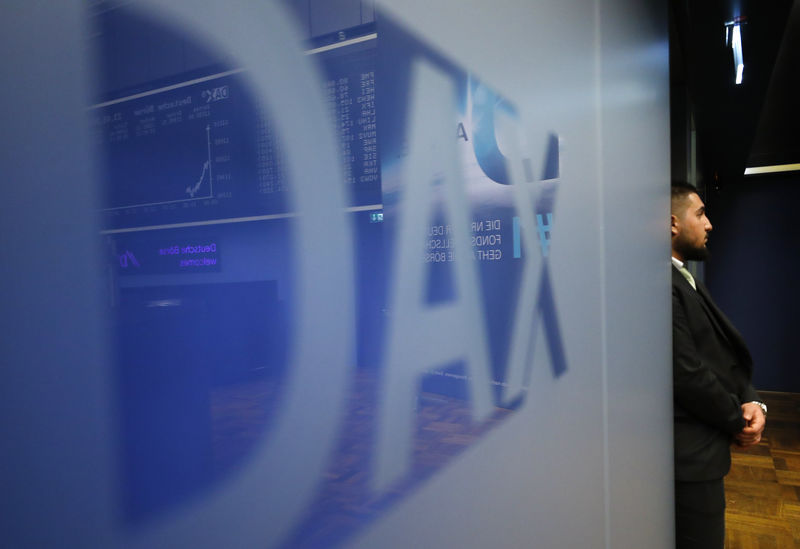By Helen Reid
LONDON (Reuters) - Led by technology, autos and mining stocks, European benchmarks rose on Friday after Asian markets climbed overnight on hopes of new trade talks between the United States and China.
The pan-European STOXX 600 was up 0.1 percent by 0830 GMT, set to seal its strongest weekly gains in seven weeks. It had pared its gains somewhat after rising as much as 0.5 percent in early trading.
Analysts and traders saw new trade talks as a positive for the market, with some expecting U.S. President Trump to seek to seal a trade deal before mid-term elections in November, but they pointed to lingering nerves in the market.
Germany's trade-sensitive DAX (GDAXI) managed a 0.2 percent rise, in line with the leading euro zone stocks index (STOXX50E).
Topping the STOXX was bank and asset manager Investec (L:INVP) which jumped 12 percent after saying it would demerge and separately list its asset management arm.
Mining stocks (SXPP) climbed 0.6 percent as copper held near a two-week peak, helped by hopes of an easing of trade war tensions.
Tech stocks (SX8P) were also among top gainers, up 0.2 percent after Apple (NASDAQ:AAPL) climbed further on Wall Street following Europe's close, fuelling a rebound in the tech sector.
Chipmakers AMS (S:AMS), Infineon (DE:IFXGn), and Siltronic (DE:WAFGn) were up 2.4 to 6.3 percent. STMicro (MI:STM) got an additional boost when Bank of America Merrill Lynch (NYSE:BAC) analysts upgraded the stock to "neutral".
"We think the shares are pricing in a significant amount of negative sentiment with regards to near term demand," they wrote, also reiterating "buy" recommendations on Infineon and ASML.
Autos (SXAP) rose 0.7 percent, building on the previous session's rise as China and the United States planned a new round of trade talks to defuse a dispute that has disrupted markets.
UK housebuilders Taylor Wimpey (L:TW) and Barratt Development (L:BDEV) were the worst-performing FTSE 100 stocks. They fell 0.8 to 0.9 percent after Bank of England Governor Mark Carney warned ministers that a no-deal Brexit could cause house prices to fall by 35 percent over three years, according to the Times.
Investors have been shunning European stocks in favour of U.S. stocks this year, lured by significantly stronger earnings growth there.
Overall the market is currently short European equities, according to Bank of America Merrill Lynch.

Some $57 billion has flowed out of Eropean equity funds over the past six months, strategists at the U.S. bank said, citing EPFR data.